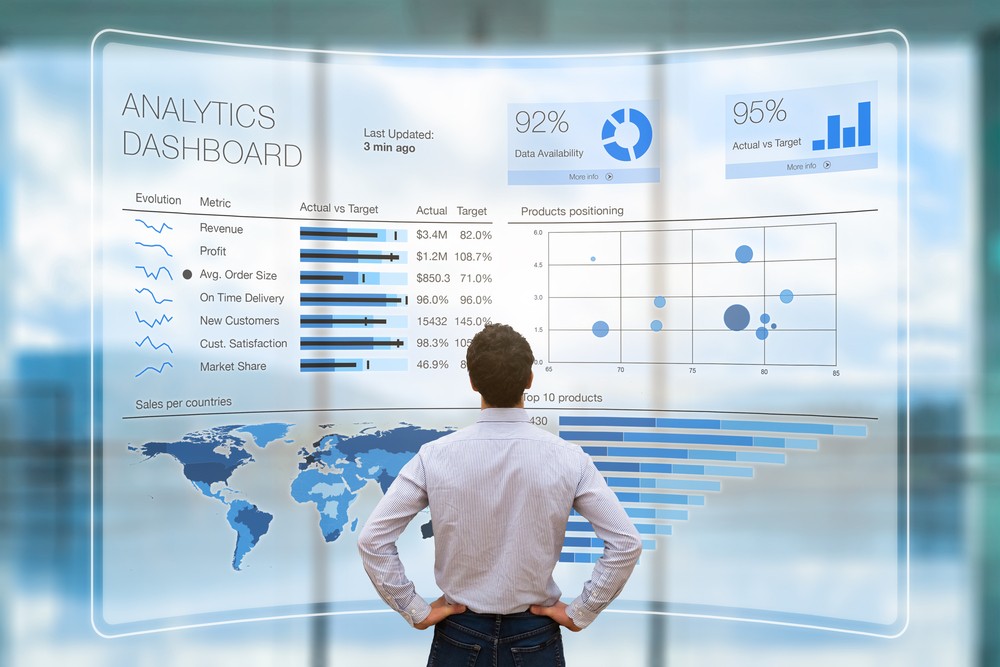It’s a puzzle with many elements to place correctly before we see how the final picture will look. Amongst many, one key element is how retailers use every asset, including data analytics, to their advantage and upskill their staff to provide an efficient and heightened level of service and problem solving.
Given the blow to profits that lockdown has represented and the social distancing/PPE measures that are transforming the way in-store customer interactions happen, retailers will be very keen to ensure through all means possible that customers still get the care and attention that a positive in-store experience offers. This is where analytics can offer an edge.
In order to effectively respond to reopening, organisations need fast access to granular insights at all levels, from strategic decisions to the frontlines. Search and AI are key to making that possible. The core areas they can help in this environment are:
Ensuring safety. First and foremost, businesses need to ensure safety both for their teams and customers. Using data can help them formulate a strategy for how many customers can safely be in store, how many employees should be there to service, etc. Once the data is collected meticulous decision-making can occur fiting staffing needs, planning store routes, and suggesting new ways of displaying stock in-store for quicker shopping trips, safely moving a greater number of customers through in the same time. This is a situation where every inch, every second counts.
Demand Forecasting. Companies can't rely on aggregated, averaged data. They need up to date information, down the most granular level, or they will miss critical insights around what products are selling in stores, which people prefer to buy on-line, which are spiking as society reopens, etc. They can then reorient supply chains, purchasing, inventory, etc., to match these shifting demands. Consumer habits and economy as a whole has been immensely affected. As businesses reopen they need to consider what new demand patterns may be here to stay in the short, mid, and long terms as the situation progresses. Moreover when the customer asks a question they must get an answer - or the risk is that they walk down the high-street or go online.
Deliver new customer experiences. Reopening doesn't mean business will return to exactly how it was before. Customer demands have shifted. Some want more delivery or pickup options. Others want to buy items bundled together. Understanding customers at a granular level will enable retailers to adapt to the new normal. With a competent analytics solution organisations can track new habits, cross reference the cost of offering them, and begin to work out how best to manage and promote them. For example, examining the metrics of curb-side pick-up, and seeing what tactics they can continue to employ to drive higher profits as we move through what might be a long-term changed way of operating due to the pandemic.
Ultimately, it’s the people on the front line serving customers that need to be given the tools that they need to offer the best customer experience possible. Given the confounding variables the virus has thrown into the mix, experience is everything to ensure customers are safe and satisfied.
ENDS
About ThoughtSpot
The world’s most innovative enterprises use ThoughtSpot to empower every person in their organisation, from C-suite executive to front-line employee, with the ability to quickly uncover data-driven insights. With ThoughtSpot, business people can type a simple search to instantly analyse billions of rows of data, and leverage artificial intelligence to get trusted, relevant insights pushed to them as answers to thousands of questions they might not have thought to ask. ThoughtSpot is simple enough for any business person to use, yet powerful enough to handle even the largest, most complex enterprise data without sacrificing speed, security, or governance. That’s why customers like Walmart, 7-11, BT, Daimler, Exxon, Hulu, Royal Bank of Canada, Bank of the West, and Nationwide Building Society have turned to ThoughtSpot to transform their decision-making cultures and analyst firm Gartner named ThoughtSpot a Leader in the 2020 Magic Quadrant. By making insights a part of every conversation and every decision, ThoughtSpot is reimagining the role of data in creating a more fact-driven world. For more information, please visit www.thoughtspot.com.




